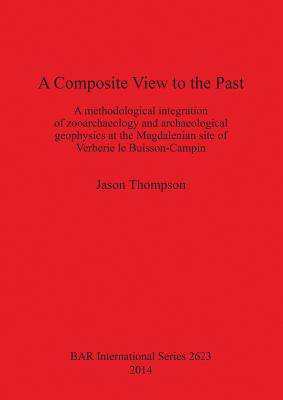
- Retrait gratuit dans votre magasin Club
- 7.000.000 titres dans notre catalogue
- Payer en toute sécurité
- Toujours un magasin près de chez vous
- Retrait gratuit dans votre magasin Club
- 7.000.0000 titres dans notre catalogue
- Payer en toute sécurité
- Toujours un magasin près de chez vous
A Composite View to the Past
A methodological integration of zooarchaeology and archaeological geophysics at the Magdalenian site of Verberie le Buisson-Campin
Jason ThompsonDescription
Debates of alleged human modernity and archaism have dominated much of the recent Eurasian Paleolithic archaeological literature. Most debate has tended to proceed through the position and relative disposition of various interesting theoretical questions, such as "When did Modernity arrive in Europe?", or "Which Pleistocene human chronospecies brought Modernity to Europe?", or even, "Were Neanderthals modern?" Some even ask, "Were Neanderthals human?" The evidence on which such debates have occurred have tended to consist of data derived from artifact seriations and various attribute analyses of lithic technology, and, especially since the late 1980s and 1990s, upon mitochondrial DNA and other (unfortunately non-comprehensive) genetic studies. Some of the issues arising from these debates provide the focus for this present study.
Spécifications
Parties prenantes
- Auteur(s) :
- Editeur:
Contenu
- Nombre de pages :
- 112
- Langue:
- Anglais
- Collection :
- Tome:
- n° 2623
Caractéristiques
- EAN:
- 9781407312583
- Date de parution :
- 25-04-14
- Format:
- Livre broché
- Format numérique:
- Trade paperback (VS)
- Dimensions :
- 210 mm x 297 mm
- Poids :
- 381 g

Les avis
Nous publions uniquement les avis qui respectent les conditions requises. Consultez nos conditions pour les avis.






